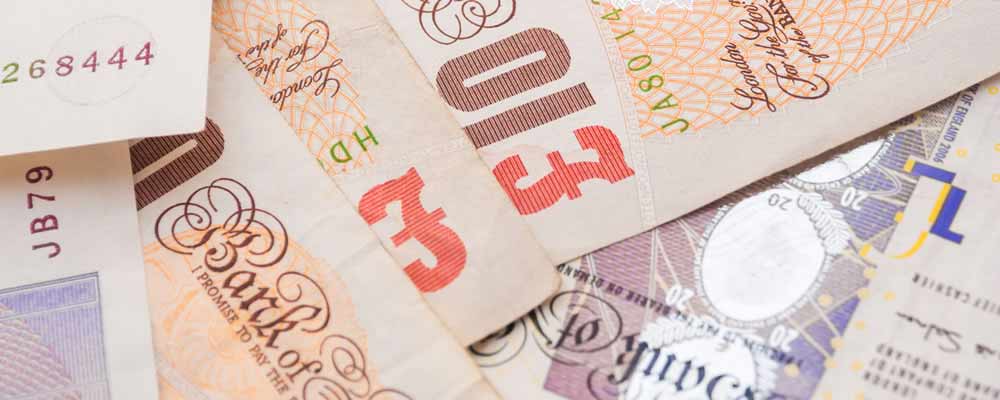With the Supreme Court convening to hear the government’s appeal over Parliamentary involvement in the Brexit process the strength of the Pound has remained somewhat limited.
- GBP EUR exchange rate benefitted from Italian referendum result – Euro weighed down by resignation of Prime Minister Renzi
- UK Services PMI bettered forecast for November – Confidence in strength of UK economy boosted
- Fears over the Eurozone’s future eased by defeat of far-right in Austrian presidential election – Second political upset failed to materialise
- Strong US data predicted to weaken GBP USD exchange rate – Odds remain high for imminent Fed rate hike
It was a rough start to the week for the Euro, meanwhile, as Italy rejected reforms to the power of the Senate in a move seen as the latest populist backlash.
Soft Brexit Hopes Boosted GBP EUR Exchange Rate
Speculation that the UK could maintain its current level of access to the single market, prompted by a comment from Chancellor Philip Hammond, encouraged confidence in the Pound on Tuesday.
However, while the GBP EUR exchange rate trended higher around 1.18 in response to this, the GBP USD pairing failed to strengthen and trended lower in the region of 1.27. In large part this was due to better-than-expected US durable goods orders data, which cemented expectations of an imminent Fed interest rate hike.
(Previously updated at 08:37 on 06/12/16)
Strong German Factory Orders Kept GBP EUR Exchange Rate on Narrow Trend
Confidence in the Pound picked up a little on Tuesday morning, despite the BRC like-for-like sales data falling short of forecast. Even though German factory orders jumped 6.3% on the year in October this failed to particularly dent the GBP EUR exchange rate, which was trending narrowly in the region of 1.18 at the start of the European session.
(Previously updated at 11:33 05/12/16)
Pound (GBP) Demand Muted at Start of Supreme Court Brexit Hearing
In spite of investor expectations November’s UK Services PMI strengthened moderately from 54.5 to 55.2, indicating that the economy’s main engine of activity has remained in robust health. This offered some support to the Pound (GBP) at the start of the week, pointing towards continued domestic resilience. Even so, the reaction of markets was somewhat muted, with focus generally concentrated on the latest political developments in Europe.
Brexit-based tensions look likely to flare up once again as the Supreme Court hearing of the government’s appeal begins. At stake is the earlier High Court ruling that Parliament must be consulted before Article 50 is triggered, a prospect that is viewed as a way of limiting the government’s push towards a hard Brexit. If that ruling is upheld then Theresa May’s timeline could be in jeopardy, meaning that the process of withdrawing the UK from the EU is likely to be pushed back. However, the Supreme Court’s verdict is unlikely to be particularly fast in coming, limiting the upside potential of GBP exchange rates in the near term.
Euro (EUR) Exchange Rates Dented by Rejection of Italian Constitutional Reforms
Confidence in the Euro (EUR) plunged in the wake of the Italian constitutional referendum, with the ‘No’ campaign emerging victorious and Prime Minister Matteo Renzi promptly announcing his resignation. This was not quite as much of a political upset as it could have been, however, with polls having long pointed towards a rejection of Renzi’s attempt to reform the powers of the Senate. Nevertheless, the Pound Euro (GBP EUR) exchange rate saw a strong surge on Sunday night as fears over the ailing Italian banking sector were amplified. The departure of Renzi was not seen to bode well for the planned recapitalisation of struggling domestic banks, with investors jittery of a fresh chapter in the Eurozone crisis.
As much of the initial volatility died back on Monday morning, however, the gains of the GBP EUR exchange rate were somewhat limited. Markets were generally relieved that the re-run of the Austrian presidential election saw the far-right defeated by independent Alexander Van der Bellen, suggesting some optimism in the outlook of the Eurozone. If the prospect of an early election in Italy is also put to rest in the coming days then the Euro could see a resurgence, even if the European Central Bank (ECB) opts to extend its quantitative easing program on Thursday.
GBP USD Exchange Rate Forecast to Trend Lower on Strong US Services Data
Despite the general moderation of market risk aversion the US Dollar (USD) remained on an uptrend across the board on Monday. Although the November labour market report was rather mixed in nature the Federal Reserve is still widely expected to raise interest rates at its December policy meeting, a prospect that is continuing to support the ‘Greenback’. While weaker wage growth could concern policymakers in the longer term an imminent return to the monetary tightening cycle appears inevitable.
There is potential for further Pound US Dollar (GBP USD) exchange rate losses in response to the latest ISM Non-Manufacturing Composite, which is forecast to have strengthened in November. This would offer fresh cause for confidence in the health of the world’s largest economy, as researchers at TDS noted:
‘TD expects the PMI to post a modest rebound to 55.3 in November following an improvement in regional surveys and Markit Services PMI. This would leave the index firmly in expansionary territory and suggests a healthy momentum in the services sector heading into the year’s end.’
Current Interbank Exchange Rates
At the time of writing, the Pound Euro (GBP EUR) exchange rate was trending higher around 1.19, while the Pound US Dollar (GBP USD) pairing was slumped in the region of 1.27.



